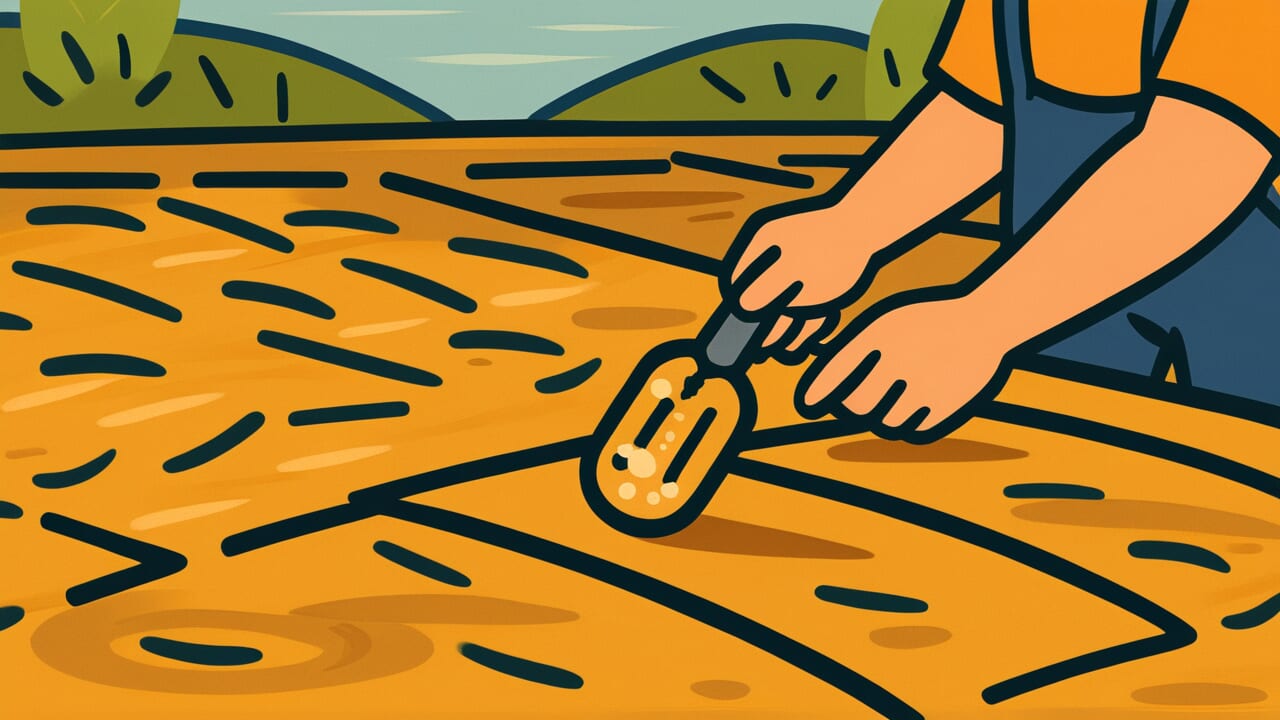How to Read “Measure millet and plow”
Awa o hakari te utsu
Meaning of “Measure millet and plow”
“Measure millet and plow” is a proverb that warns against being overly concerned with trivial matters and being stingy about small things.
It describes the foolishness of obsessing over minor details that don’t match the effort involved. The image comes from carefully measuring millet, a low-value grain, and taking the trouble to pound it.
This proverb is used when warning someone who wastes time and energy on unimportant things. It teaches that losing sight of what truly matters and clinging to trivial savings or management can actually lead to bigger losses.
Even today, situations like this are common. People worry too much about small expenses and miss big opportunities. They get caught up in minor tasks and can’t make progress on essential work.
This timeless wisdom tells us to recognize priorities and focus our energy on what truly has value.
Origin and Etymology
No clear written records explain the origin of this proverb. However, we can make interesting observations from the words themselves.
Millet has been cultivated in Japan since ancient times. Its grains are smaller than rice and were considered less valuable. “Measure” means to weigh or count something. “Plow” likely refers to “pound,” meaning to process grain in a mortar.
The expression probably emerged from how agricultural communities handled grain. Rice was treated as precious, but millet and other grains were everyday food.
Despite this, carefully measuring millet grain by grain and taking the trouble to pound it would have been work that didn’t match the effort involved.
In other words, this expression compares being overly fussy about low-value things and spending time and effort on them to a familiar farming scene.
In an era when agriculture was central to life, people learned wisdom about judging importance through handling grain. This proverb likely emerged as a lesson from that lived experience and was passed down orally through generations.
Usage Examples
- He spends hours comparing prices to save a few cents. It’s exactly like “Measure millet and plow.”
- The meeting only discussed minor wording changes while the important policy remained undecided. This is the same as “Measure millet and plow.”
Universal Wisdom
The proverb “Measure millet and plow” sharply points out a fundamental human mistake. It’s our tendency to become captivated by concrete, measurable things right in front of us and lose sight of what truly matters.
Why do people obsess over trivial things? Because small things are easier to manage and give us a sense of control. We can certainly count millet grains one by one.
But life’s big directions and truly valuable goals can’t be measured easily. That’s why people unconsciously escape into small, measurable things.
This human tendency may come from anxiety. Big decisions and important choices carry large risks of failure and create fear.
On the other hand, detailed saving and management give us the comfort of “doing something,” even if it means little.
Our ancestors saw through this psychological trap. True abundance doesn’t come from obsessing over details. It comes from seeing the big picture and having the courage to invest boldly in what has value.
This proverb conveys this life truth through the everyday scene of farm work.
When AI Hears This
The wisdom of processing only the necessary amount of millet touches on the delicate balance between energy and entropy. Processing is actually “creating order” in physics terms.
Scraping the surface of millet to extract only the uniform interior means creating a regular state from a disordered one. In other words, it’s an act of locally decreasing entropy.
What’s important here is that decreasing entropy always requires energy. The more you process, the more human labor energy you consume.
What’s tricky is that over-processing causes nutrients to be lost and disrupts the chemical stability of the millet itself. Scraping too much of the surface makes it oxidize easily and deteriorate over time. This is an irreversible change that can’t be undone.
In other words, processing as ordering has a double cost. One is the labor energy you pay now. The other is the price of deterioration you pay in the future.
Processing only what’s needed is a strategy to minimize both types of entropy increase. The laws of the universe teach that “overdoing it is wasteful.” Our ancestors grasped this truth through experience, even without knowing the theory.
Lessons for Today
What this proverb teaches you today is the importance of “selection and concentration” in life. We have only limited time and energy. We should have the courage to pour those precious resources into what truly has value.
Modern society overflows with trivial things trying to steal your attention. Smartphone notifications, detailed household budgets, perfecting document decorations.
Stop sometimes and ask yourself if all these are becoming “Measure millet and plow.”
What matters is deciding what not to spend time on. Let go of perfectionism. Finish things that only need 80 points at 80 points.
Then use the time you saved for your growth, time with loved ones, or things you’re truly passionate about.
Letting go of obsession with details isn’t cutting corners. It’s the wisdom to recognize what truly matters in life’s limited time.
Starting today, why not find what your “millet” is and free yourself from it?


Comments